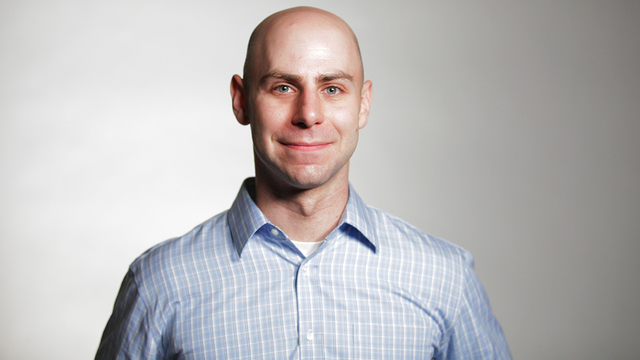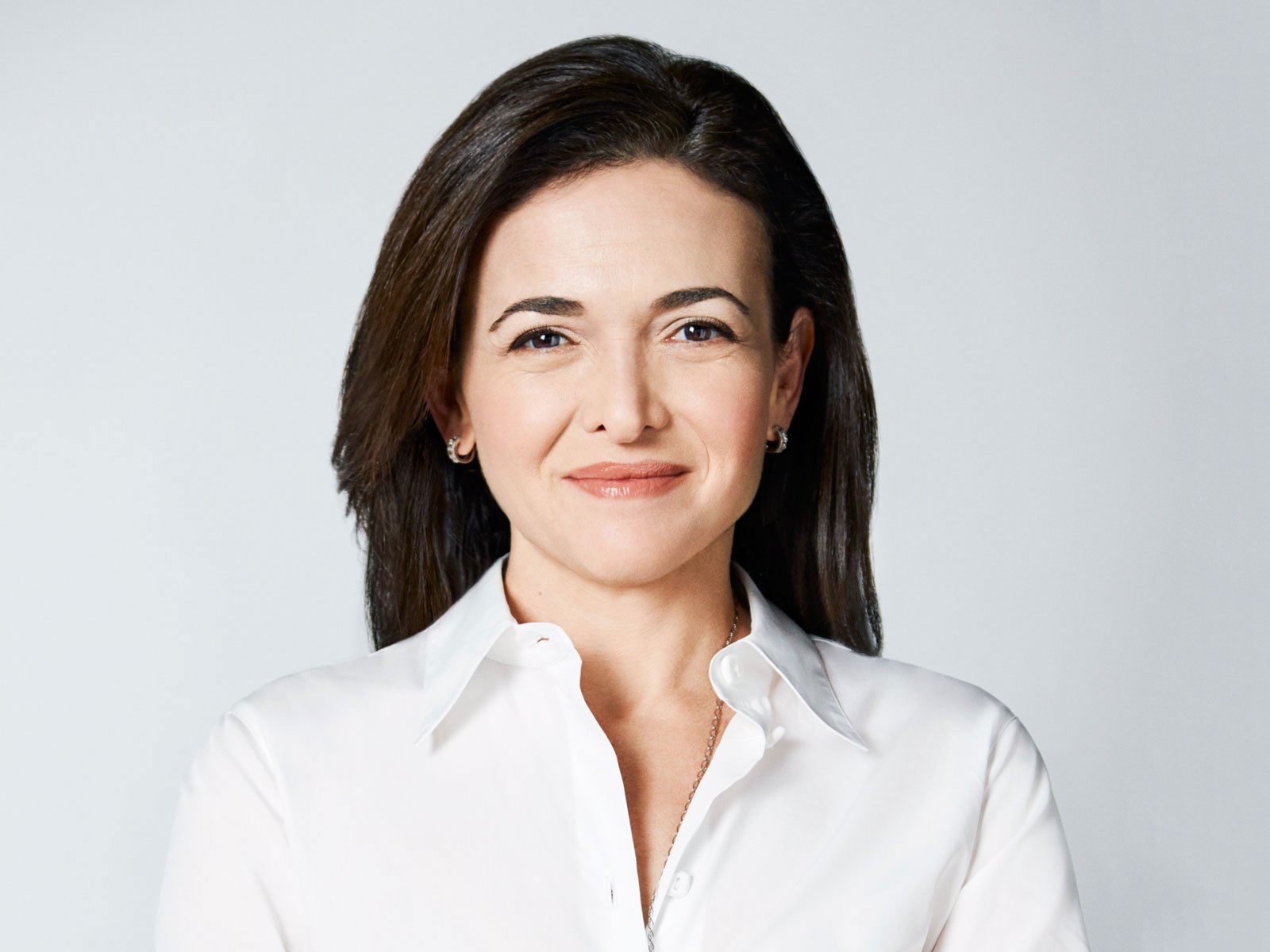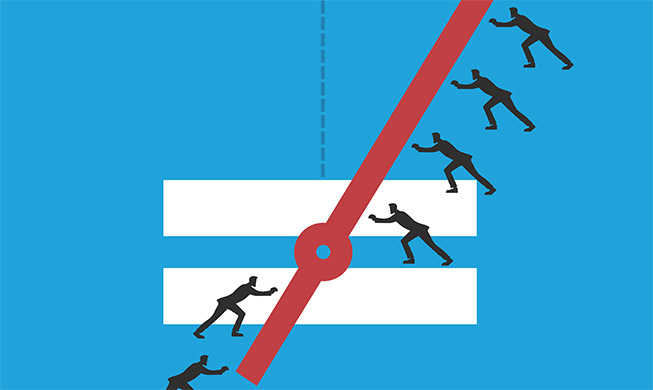
If you are putting effort into building up your personal brand, please stop. You are not a brand. Crest is a brand. Perrier is a brand. Branded things are packaged up and marketed... When we are, we are ineffective and inauthentic... you don't have a brand, but you do have a voice.
Sheryl Sandberg, COO, Facebook
AG: As a leader, what’s the best way to manage your ‘personal brand’?
Adam Grant is the Saul P. Steinberg Professor of Management, Professor of Management and Professor of Psychology at the Wharton School of Business, University of Pennsylvania and a Fellow of the Martin Prosperity Institute at the Rotman School of Management. Sheryl Sandberg is the Chief Operating Officer at Facebook and founder of `Leanin.org` and the Sheryl Sandberg & Dave Goldberg Family Foundation. They are the co-authors of Option B: Facing Adversity, Building Resilience and Finding Joy (Knopf, 2017). This conversation took place at the Wharton School of Business.
Reprinted with permission from `Rotman Management` the magazine of the University of Toronto's Rotman School of Management
AG: Shortly after Dave died, you wrote in a Facebook post: ‘I will never feel another moment of pure joy again’. Talk a bit about how you got past that.

Adam Grant, Professor, Wharton School of Business Rotman Magazine
AG: Hold on. Sheryl Sandberg watches TV?
AG: On to some other topics that you’ve written about. Many people question whether women still face biases in the workplace. What is your take on this?

Research shows that you can send in the same resumé with a White-sounding name or a Black-sounding name, and, the White-sounding name will get 50 per cent more callbacks. It's basically worth eight years of experience to have a White-sounding name over a Black-sounding name. The data is very clear on this: We have to be willing to call out biases and we have to recognize that a world where people are given equal opportunity — without regard to race or gender — will be a better world for all of us.
Sheryl Sandberg, COO, Facebook
AG: A lot of people ask me what I think of their ‘12-year career plan’ or the ‘15-year path’ that they've mapped out for themselves. What would you say to these people?

The other thing I learned was the power of not just offering to do something, but actually doing something. That’s another thing I got wrong. I have said to many people over the years, ‘Let me know if there's anything I can do’ — and I authentically meant it. The problem is, when you say that, it shifts the burden to the person who needs the help
Sheryl Sandberg, COO, Facebook
AG: I remember being stunned by some of the comments you faced when your husband died. One ‘friend’ said to you, 'You're just too angry and sad; it's hard to be around you'. Can you talk a bit about what you learned about being a supportive friend?
Adam Grant: People who know your story are amazed by how you have managed to thrive in the face of adversity. What has been the key for you?

One of the sentences in the book that I love is, ‘Joy is a discipline'. It takes work at the best of times—and it takes even more work when there is loss or grief
Sheryl Sandberg, referring to 'Option B: Facing Adversity, Building Resilience and Finding Joy', the book she co-wrote with Adam Grant
AG: I remember you saying to me, 'I don't think I can do anything'. Can you talk a bit about that feeling?
SS: Before we lost David, if someone I knew was going through something difficult, the first time I saw them I would say, ‘I am so sorry about X’; then, I wouldn’t bring it up again. I figured, if the person wanted to talk about it, they would tell me. Also, I didn't want to keep reminding them about it. I now know that this mindset is ludicrous: You can't 'remind me’ that I lost Dave. Trust me, I know that. And, you can't remind someone that she went for chemotherapy this morning, or that his dad just went to jail. They know. I'm not saying that every person will want to talk about it every time, but you can always say, ‘I know you're suffering, and I am here if you want to talk’.
The other thing I learned was the power of not just offering to do something, but actually doing something. That’s another thing I got wrong. I have said to many people over the years, ‘Let me know if there's anything I can do’—and I authentically meant it. The problem is, when you say that, it shifts the burden to the person who needs the help.
‘Doing something’ doesn’t have to be a huge gesture. Two of my dear friends tragically lost a child, and were in the hospital for many months. One day, a friend of Dan’s texted him out of the blue and asked, ‘What do you want on your burger?’
Another friend of mine read our book before it came out. She had a friend—not a close friend—whose child had leukemia and had to return to the hospital. She said to me, “Before I read the book, I would have done nothing, because she isn’t one of my best friends. How dare I impose on her when she’s dealing with a sick child?' But because she read the book, she went to the toy store and bought a stuffed animal; then she went to the hospital lobby and texted her friend: ‘I'm down here in the lobby; if you want to come down, I have something for you, but I have to leave in 15 minutes.’ The woman texted her back right away and said, ‘Please, come up!’ She gave the stuffed animal to the four-year-old and the mother was standing behind her crying, mouthing the words 'Thank you!’
You don't have to be someone's best friend from the first grade to show up with a burger or a teddy bear, but the fact is, a lot more ‘showing up’ and acknowledging would help a lot of people.
SS: We know from the data that White men — and particularly young White men — believe that the deck is stacked against them because of all the talk about diversity and inclusion. A young employee at Facebook once asked me about this, and I just looked at him and said, ‘Look, if we’re biased in favour of women and minorities, we really suck at it, because we still don't have nearly enough of these people in our senior ranks’. When 95 per cent of Fortune 500 CEOs are male, it's difficult to imagine that there is bias against male leadership. And, based on a recent Lean In-McKinsey survey of over 100 companies, 30 per cent more first promotions last year were for men rather than women. So, if there is bias in the other direction, it certainly isn't showing up in the data.
We need to recognize that biases are real, call them out and explain what they are. A man can be competent and liked, and as he gets more powerful and is considered more competent, we like him even more. But women face a trade-off: as they get more powerful, research shows that we like them less. Also, research [by Rotman Professor Sonia Kang et al.] shows that you can send in the same resumé with a White-sounding name or a Black-sounding name, and, the White-sounding name will get 50 per cent more callbacks. It's basically worth eight years of experience to have a White-sounding name over a Black-sounding name.
The data is very clear on this: We have to be willing to call out biases and we have to recognize that a world where people are given equal opportunity — without regard to race or gender — will be a better world for all of us. We will be more productive, our companies will be better-run, our kids will be happier and they will do better in school.
SS: I get this question a lot, particularly from young audiences, and every time, I shudder. If you are putting effort into building up your personal brand, please stop. You are not a brand. Crest is a brand. Perrier is a brand. Branded things are packaged up and marketed. People are not that simple, and we can’t be packaged. When we are, we are ineffective and inauthentic.
I would say to people, you don't have a brand, but you do have a voice. Unlike a brand, it is not consistently ‘wrapped up’ in the exact same way. I have used my own voice to help build my company, to speak out on women’s issues and lately, to talk about grief and try and help others break out of the isolation I felt.
Don't package yourself. Just speak honestly, and whenever possible, speak with some data behind you. Speak from your experience, in an authentic way. Work on developing your voice, not your brand.
Sheryl Sandberg: The fact is, I got through [the sudden death of my husband] because you and others in my life have been unbelievable friends. You were right there for me emotionally, processing it all with me in real time. As a result of this experience, I know for a fact that we can build resilience in each other.
This is not just about me and my experience. We can all help to build ‘collective resilience’ in our communities. We have a deep responsibility to help prevent hardship, because it is not evenly distributed. People who face poverty and racism have more violence in their lives, more death and more job loss, and all of these things lead to more illness.
A great example of turning that around is a program called The Nurse-Family Partnership, which empowers first-time mothers from low-income families to create better futures for themselves. Nurses from this organization start visiting when the woman first gets pregnant, and this continues until the child is two years old. The results have been amazing: 15 years later, the incarceration rates for these young people have gone way down.
As a society, we have a responsibility to do a lot more than we're doing. You have joked that there is a whole section in bookstores for self-help books, but there is no 'help others’ section; I would really love for our book and what we're doing with `optionb.org` to launch a help-others category.
SS: Dave and I used to watch together, every night, but then I didn't, because it reminded me of him. Everything fun reminded me of him, so I did none of it. But slowly, I began to take things back. I took back Game of Thrones, even though I don't really understand it now that Dave's not there to explain. I took back Scrabble, which Dave always played with his brother, Rob. Now, Rob and I play.
It was you who suggested that each night, before I go to bed, I write down three ‘moments of joy’ from the day. I started doing that, and I still do it. They weren't big things: I had a really great cup of coffee; someone told a hilarious joke; my son gave me a hug, without being asked. But, because I was recalling these moments and writing them down, I savoured them more. It doesn't mean that there will be joy in every moment. There is still a lot of grief. But, there is also pure joy now. And I know that Dave would want that.
SS: It wasn't easy. One of the sentences in the book that I love is, ‘Joy is a discipline'. It takes work at the best of times — and it takes even more work when there is loss or grief.
About four months after Dave died, I went to a Bar Mitzvah. A childhood friend pulled me onto the dance floor, and we started dancing like high school kids. After about a minute, I broke down crying and had to be taken outside. I didn't know what was wrong with me; I just felt strange. I had been experiencing grief for four solid months, and I suddenly realized, ‘Oh, my God, I feel happy!’ The guilt totally overcame me. How dare I be on a dance floor?
Around that time, my brother-in-law called and said: 'All Dave ever wanted was for you and the kids to be happy. Please don't take that away from him'. That was the permission I needed. Often in life, we think 'happiness' is getting into a certain school, or having a child, but happiness is really about the daily stuff — all the small things. I remember one day, you said to me, ‘You have to start doing things that are fun again’. I took your advice. Even things that reminded me of Dave, I took back. The kids and I started playing Settlers of Catan again, even though Dave and I were playing it right before he died. And I started watching TV again.
SS: After Dave died, I felt the grief, the anger and the sadness—all of which I expected. Not in the amounts that they came, but I wasn't shocked by them. What did shock me is that his death totally trashed my self-confidence. Obviously, having written Lean In, I had thought a lot about self-confidence. As I put that book together I learned a lot from the data, which shows that overall, women feel less self-confident than men. I started giving women advice about how to feel more self-confident, and I took that advice myself. I was feeling really good — like I deserved my job and I could be a good mother and work. My confidence was solid.
Then, Dave's death just trashed it. I was now mothering by myself, with two grieving children. I had no idea how to do that. And when I went back to work I could barely focus through a meeting and not think about Dave — let alone contribute.
Before, when someone at work was going through something painful, I would offer them some time off. At Facebook, we are really good at that. Other companies need to step up and we need better public policy for those who are not covered by their companies. So, I would offer the person time off and say something like, ‘Don't worry; of course you can't fully focus right now — look what you're going through’. The thing is, when the shoe was on the other foot — and people were saying that to me — all it did was prove what I already knew, which was, 'Oh God: I can't do my job; I've lost Dave and now I'm going to lose everything.’ It was very scary.
Mark Zuckerberg is 15 years younger than me — so I have no idea how he knew to do this — but he started saying things to build my confidence back up. He would say, ‘Oh don’t worry Sheryl, you would have made that mistake before this happened’. That was very comforting. When I fell asleep in my first meeting on my first day back, he said to me afterwards: ‘You made two really good points in there today, and here's what they were’.
Now, when someone at work is going through something, I still offer them time off or see if I can take a project off their plate. But if they don't accept the offer, I will proactively take the time to compliment some of the little things that might have gone unnoticed before. This is really important, because to help someone get through a trauma, we need to comfort them and show up at the hospital; but we also have to take steps to build them back up, remind them that they can do their job, and give them permission to laugh and live.
SS: Those plans should go in the trash can with the personal brand documents. If I had mapped out my career, I would not be sitting here today. What you do need to have is a meaningful long-term dream. Think about what that is, and make it big and ambitious—particularly if you're a woman or an under-represented minority.
Not everyone has to want to be a CEO someday, but we should all be ambitious in terms of making a difference in the world. Ask yourself what you would do if you weren't afraid; then, ask, 'what am I doing in the next year or two to get there?’ Don’t try to connect your short-term plan to your long-run dream, because you will miss out on a lot of opportunities. Facebook didn't even exist when I started out.
Careers are a jungle gym, not a ladder. Don’t be afraid to move sideways or even backwards. Be willing to try new things, but don't tie yourself up in knots building the perfect long-term plan, because it will hold you back.













